
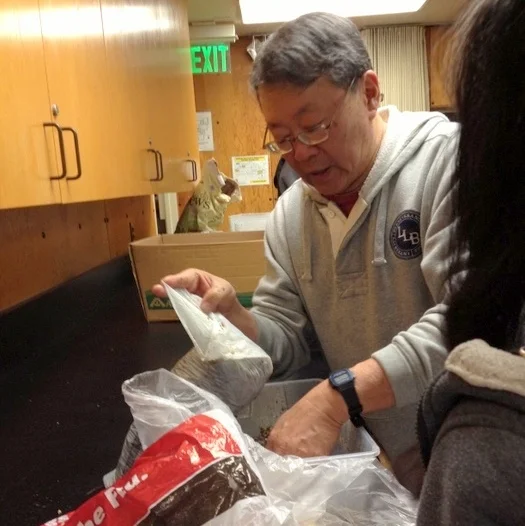
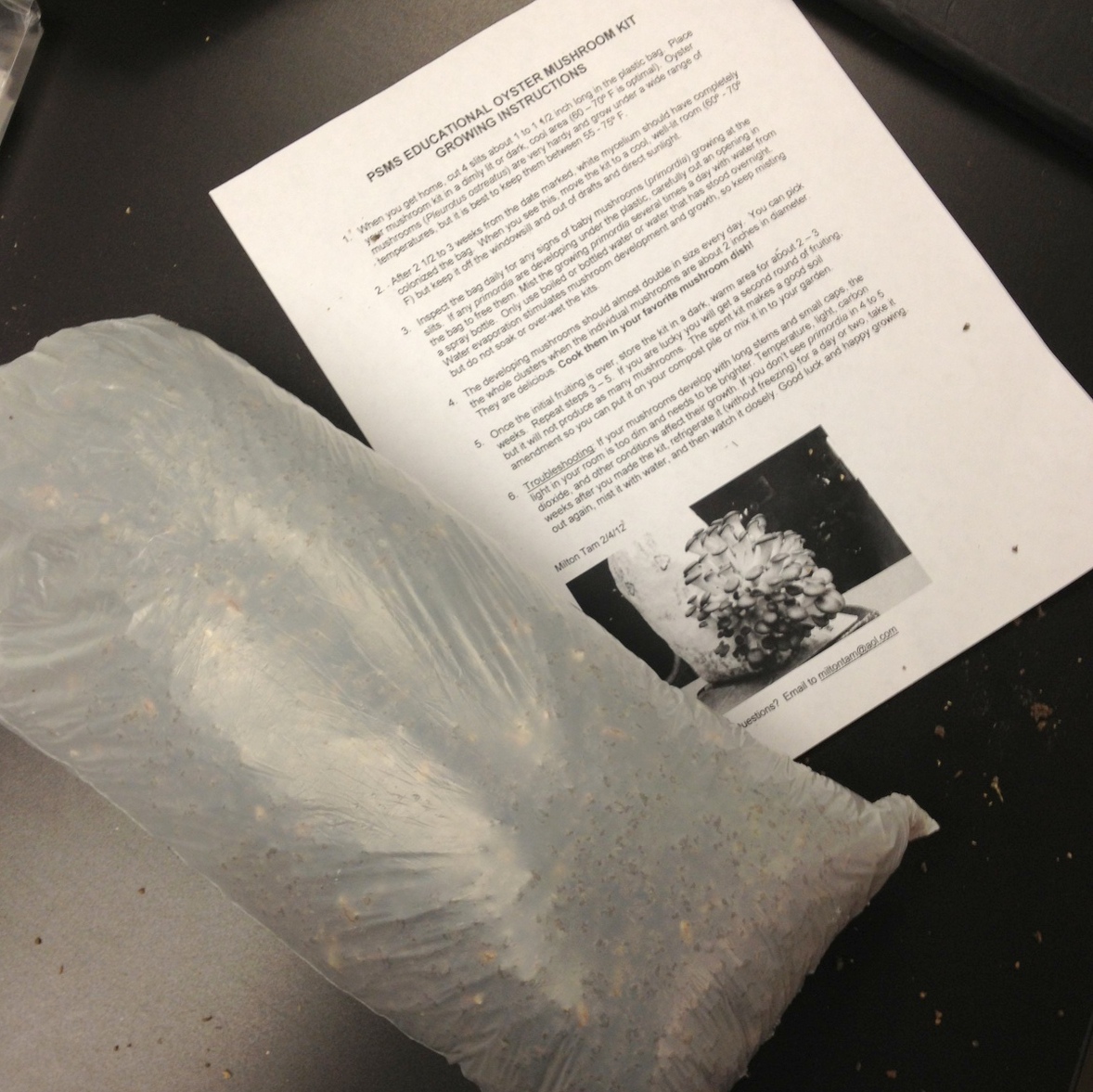
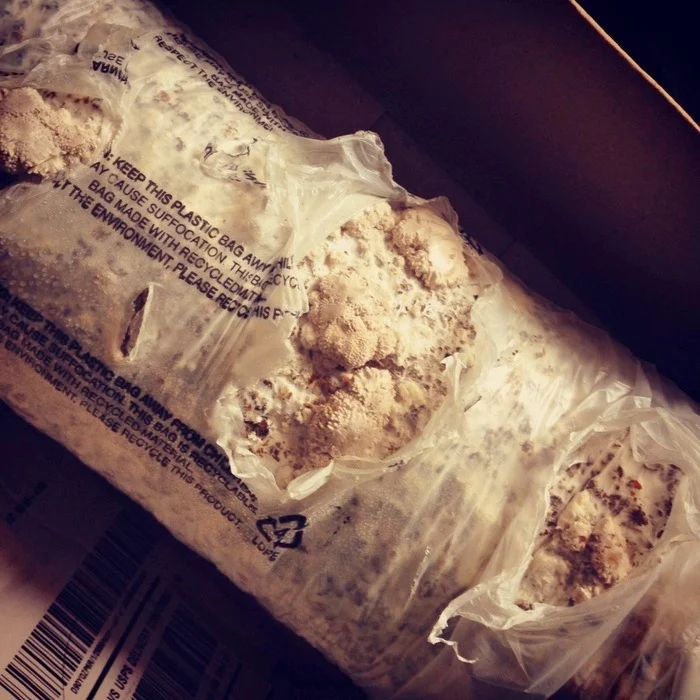

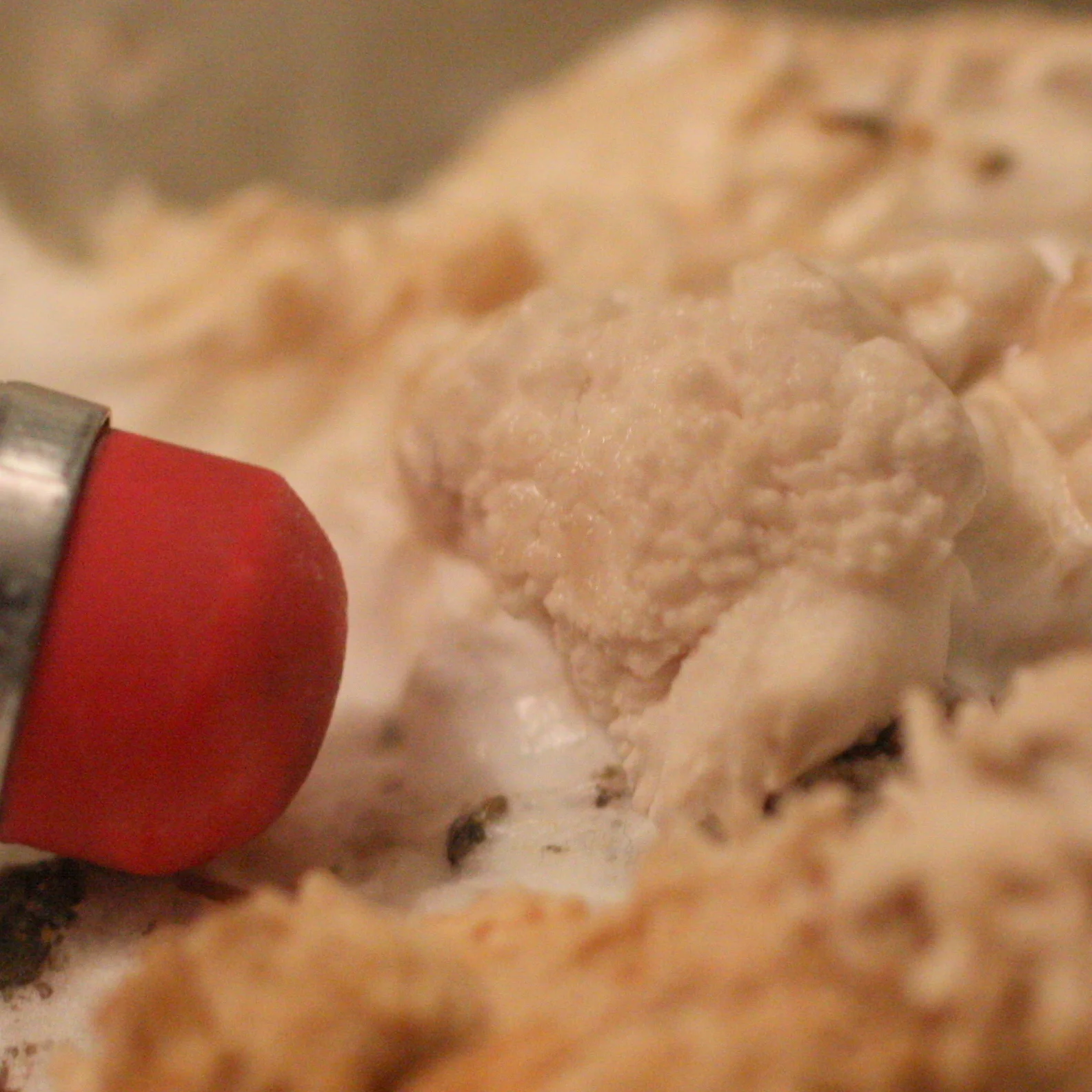
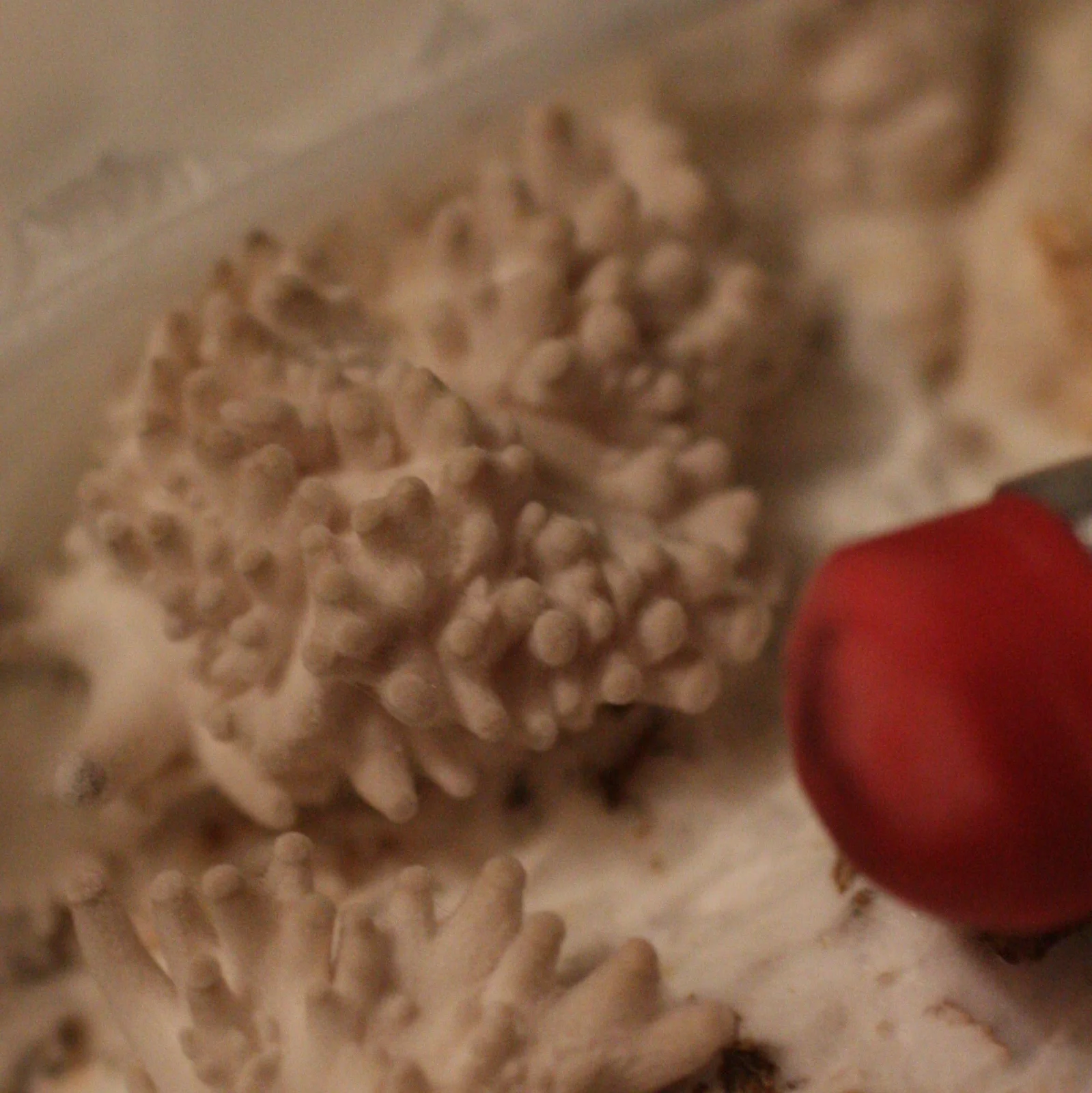
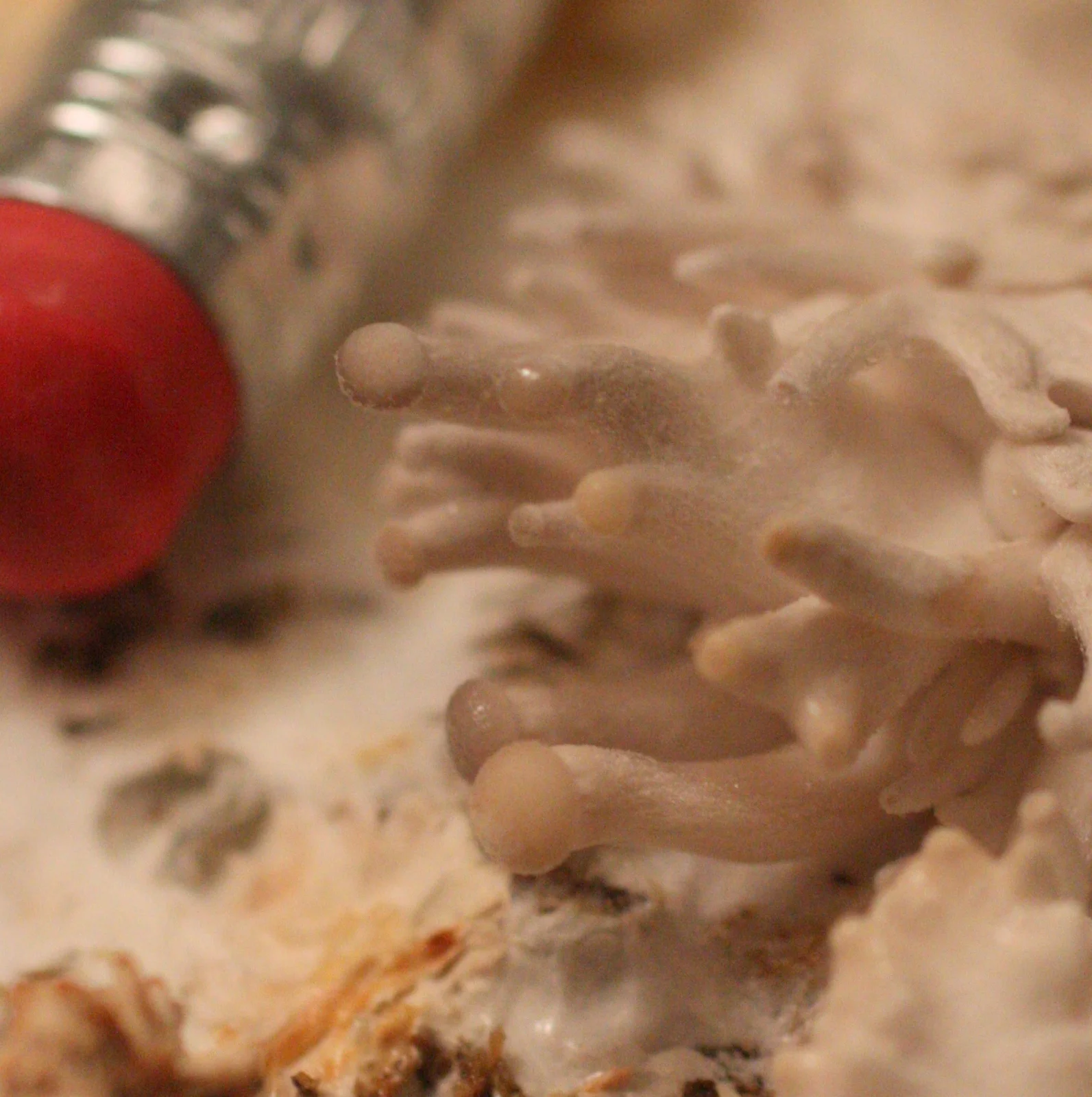
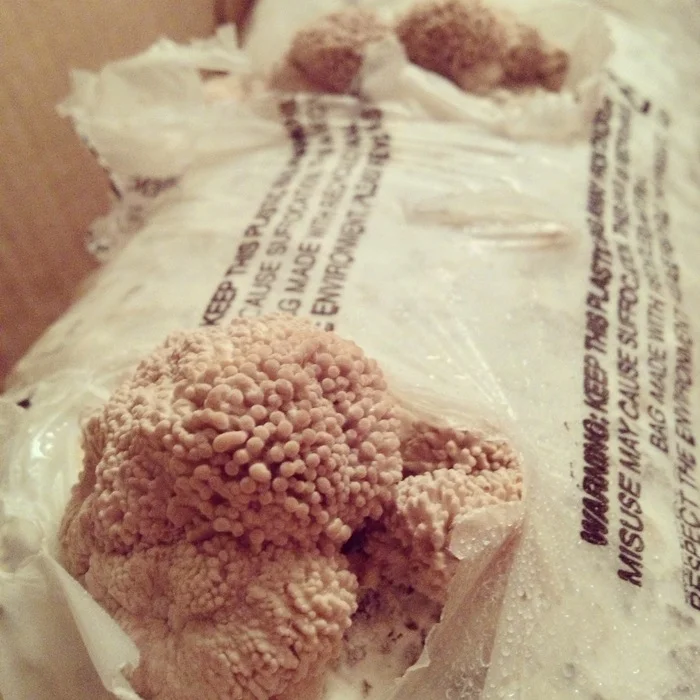
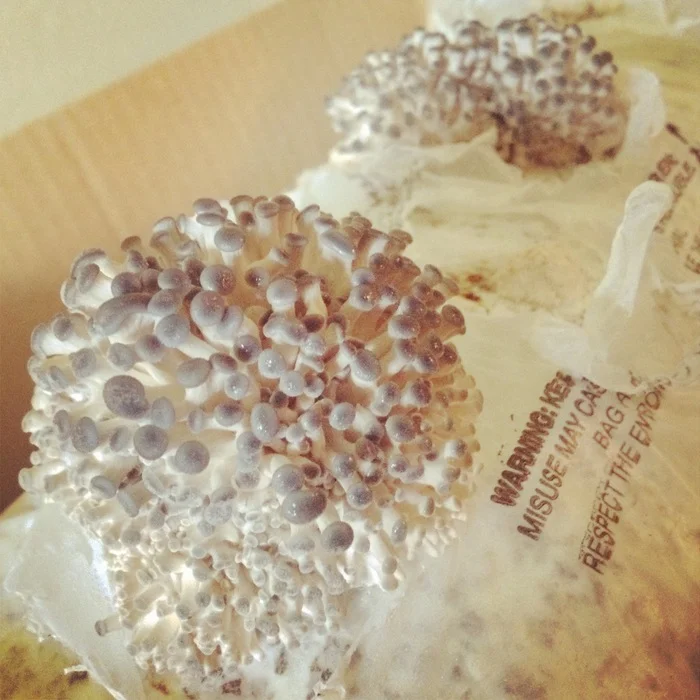
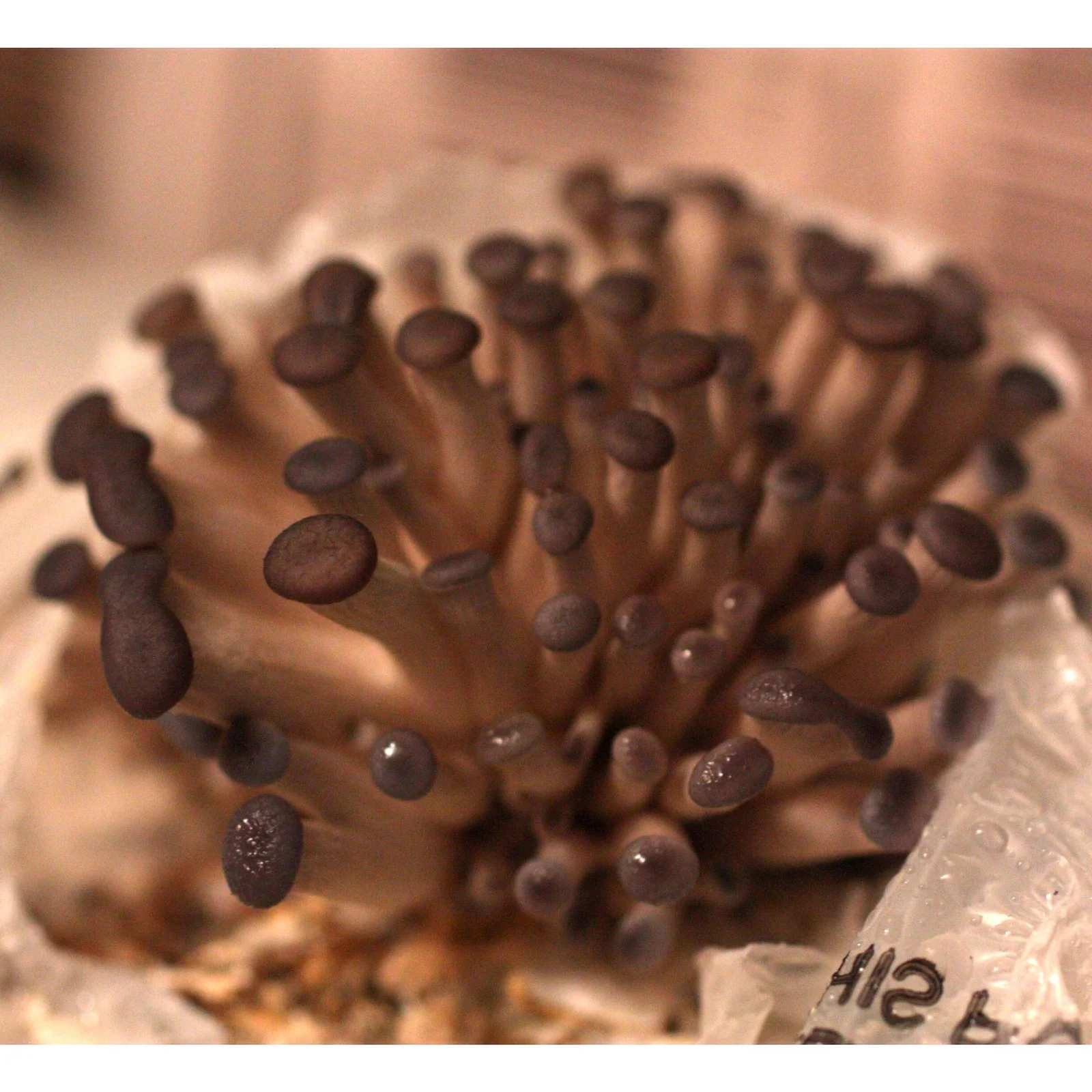
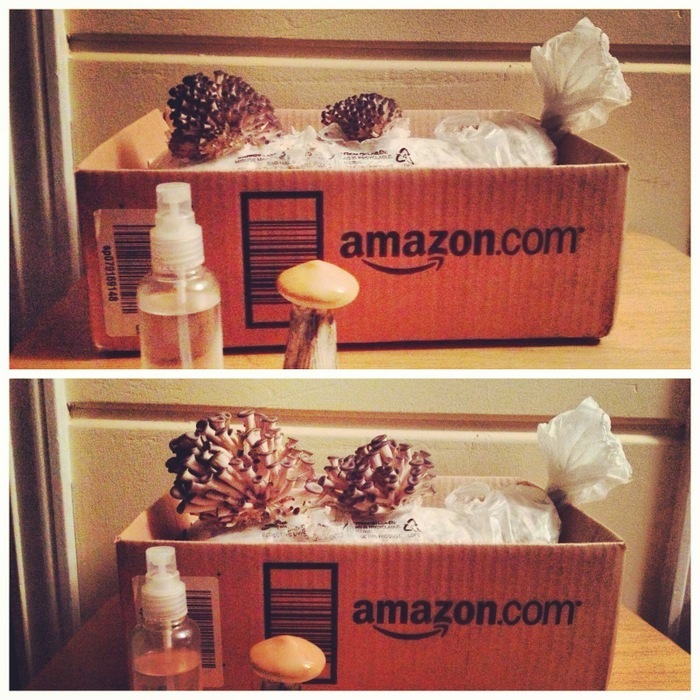
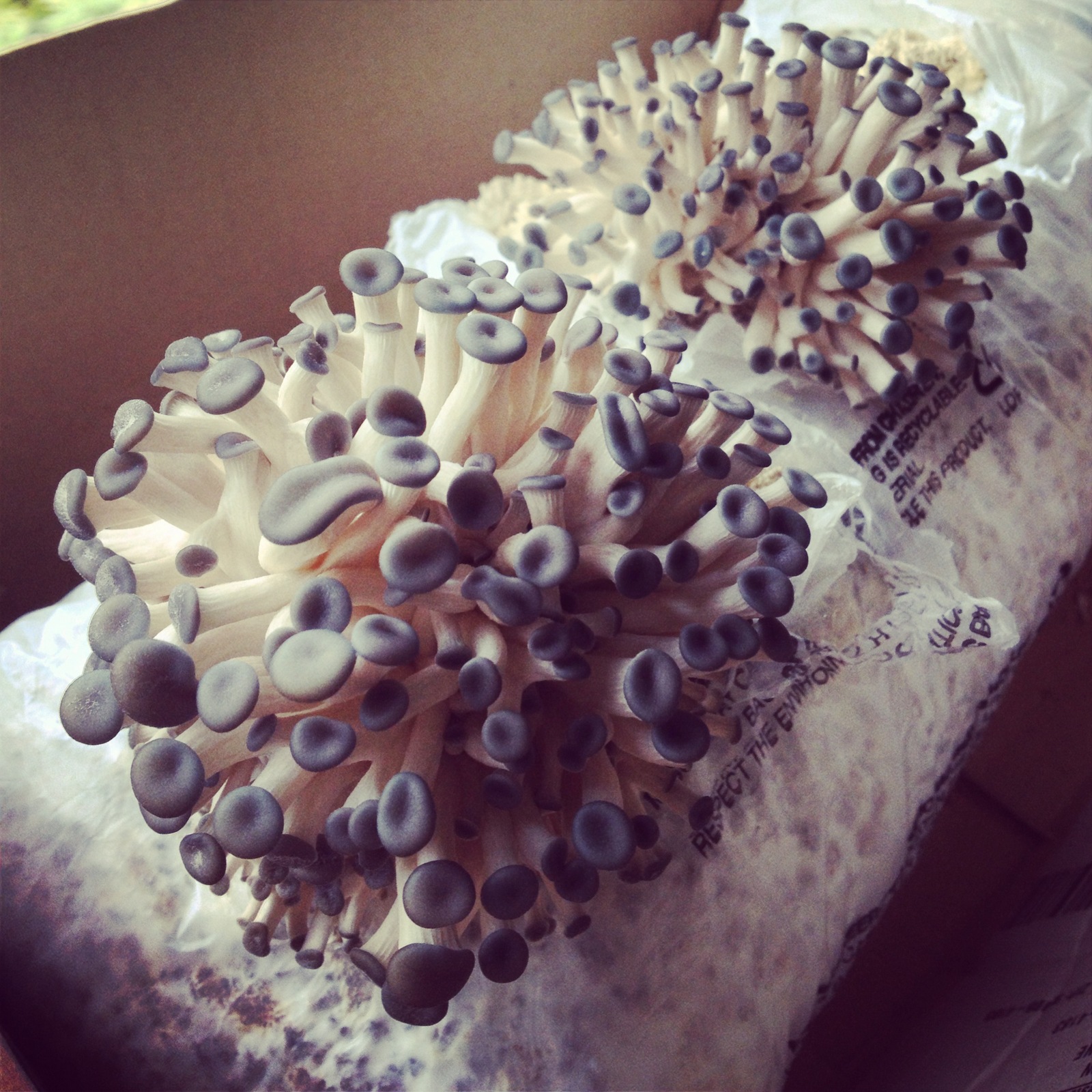
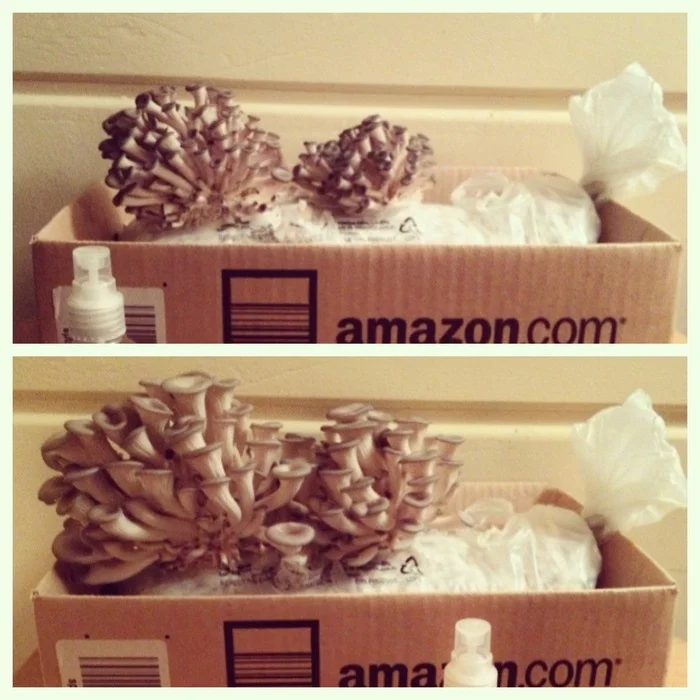
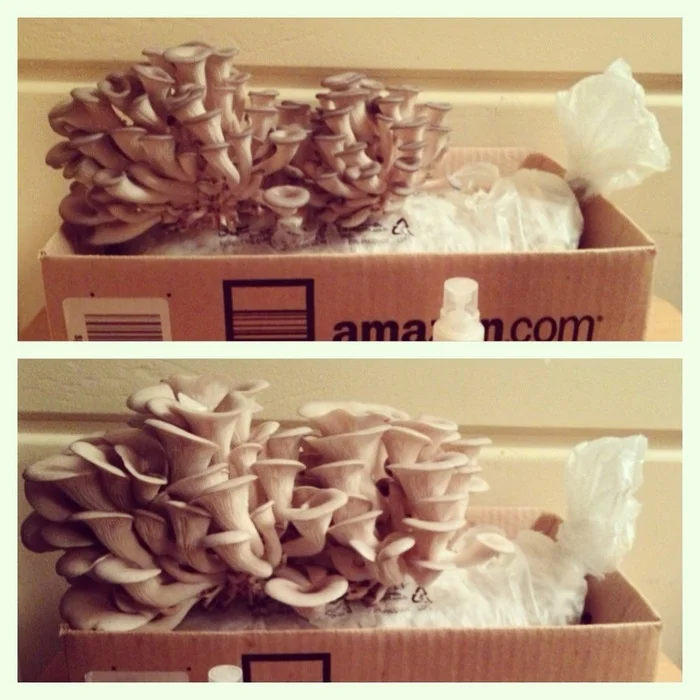

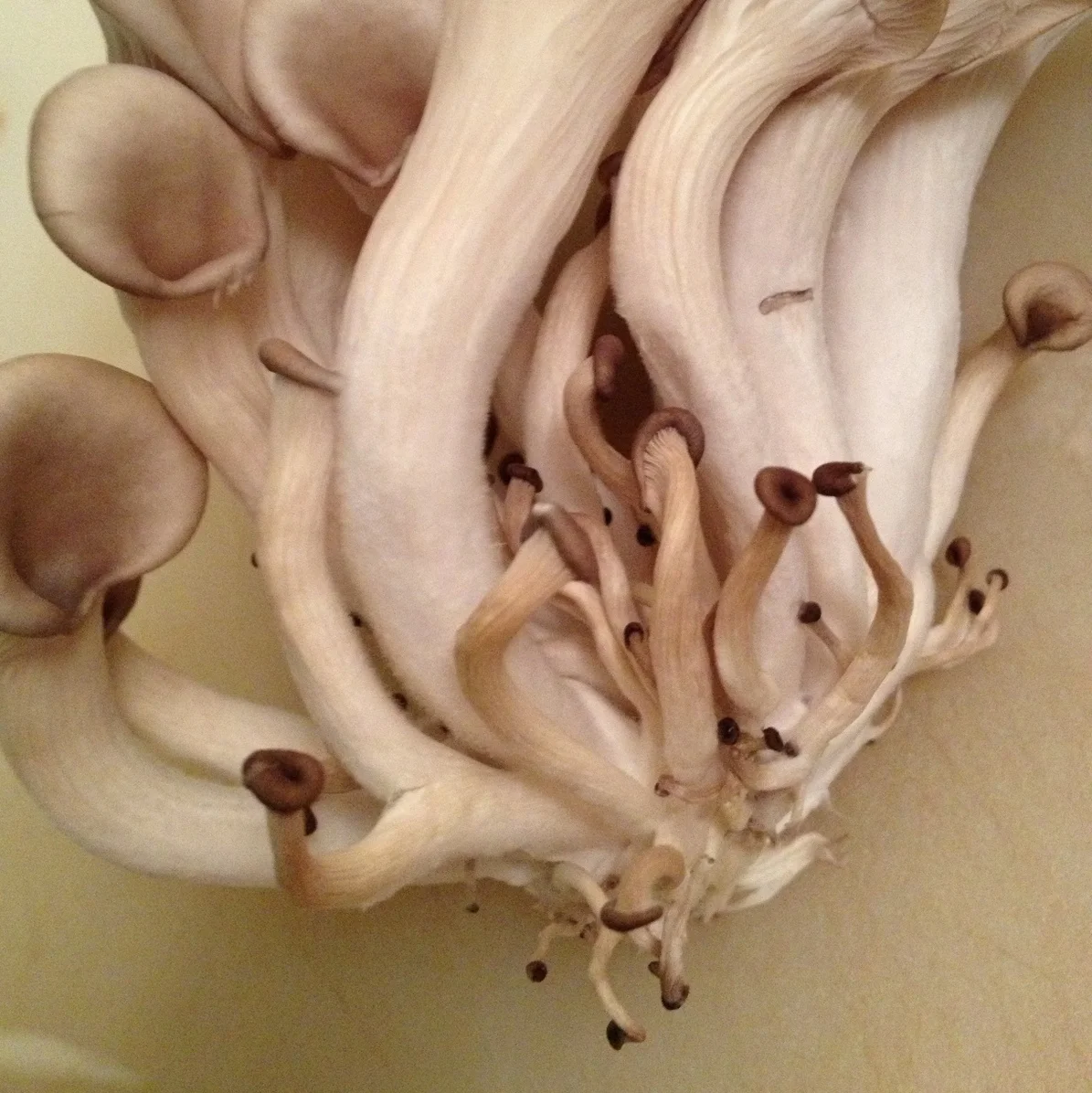
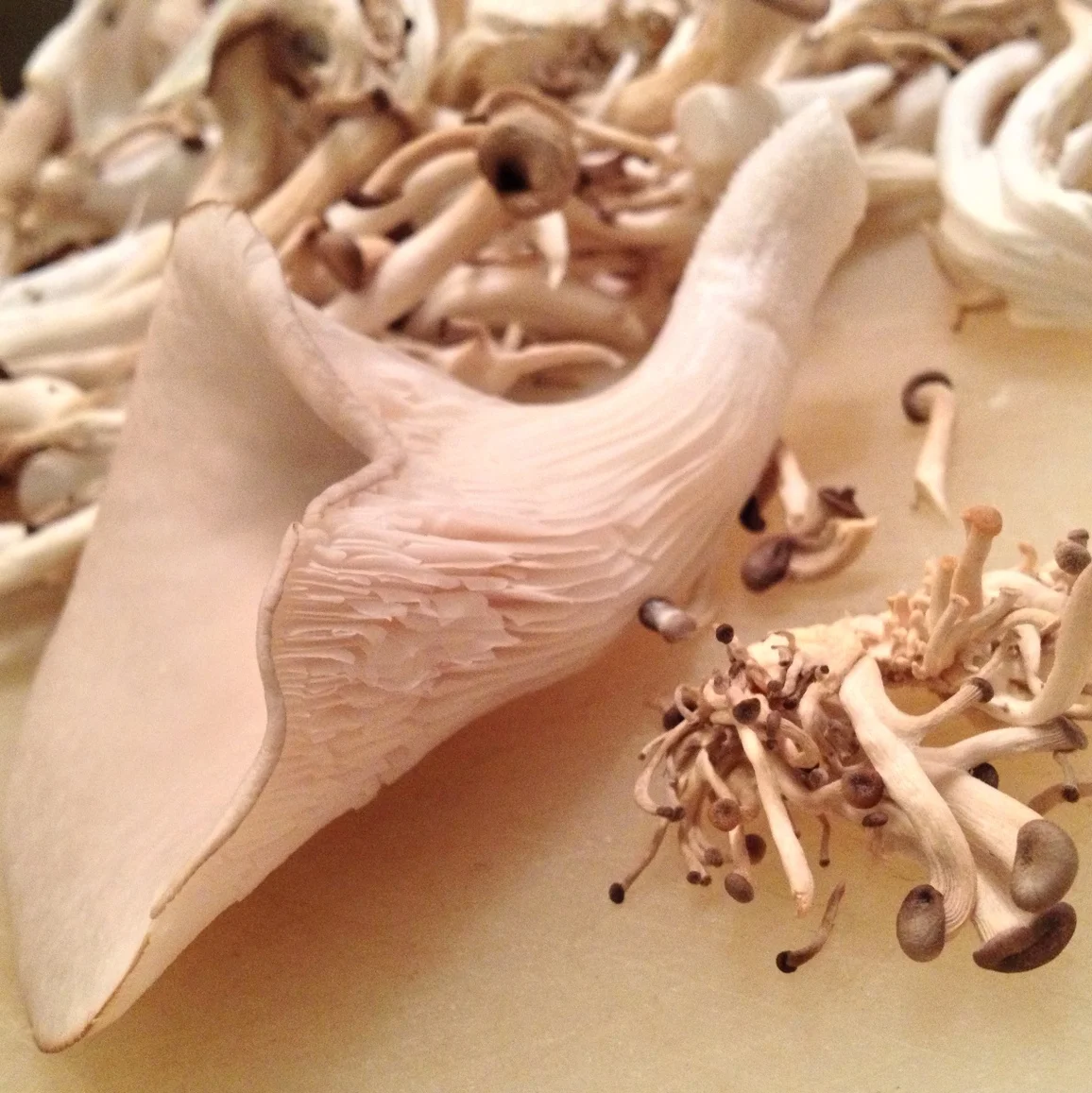

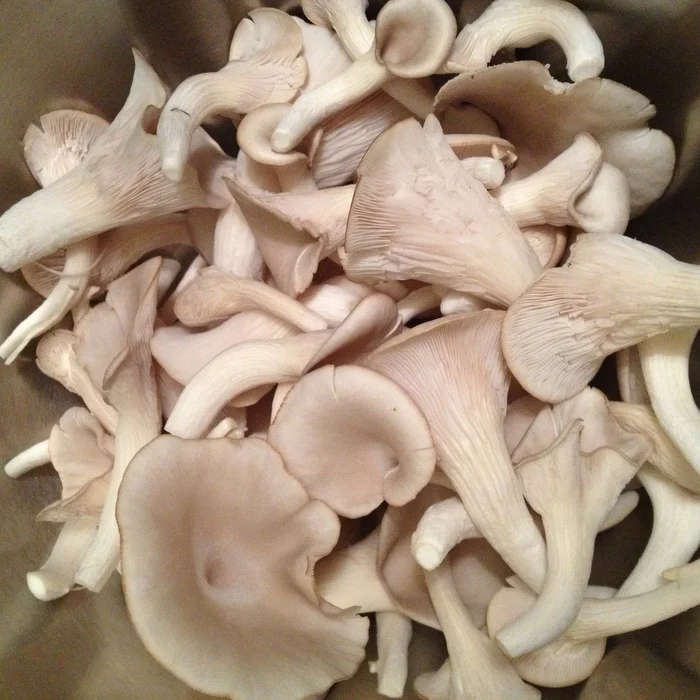
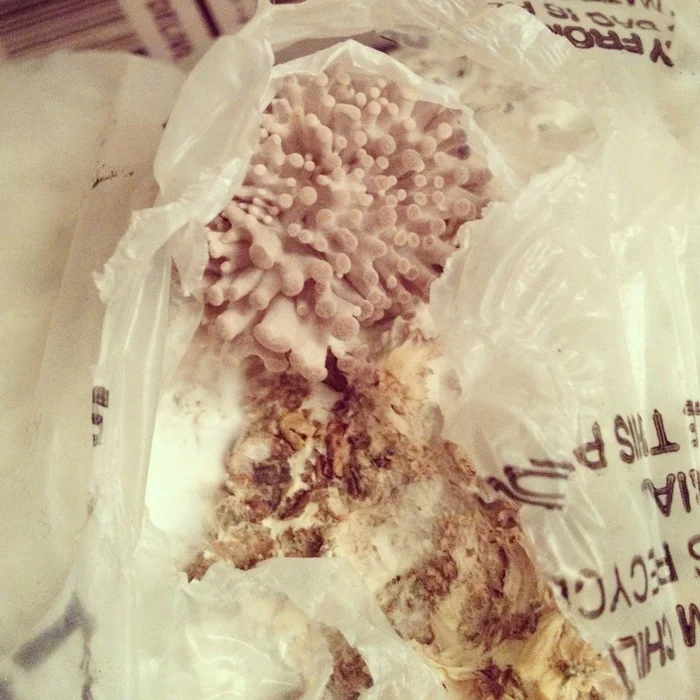
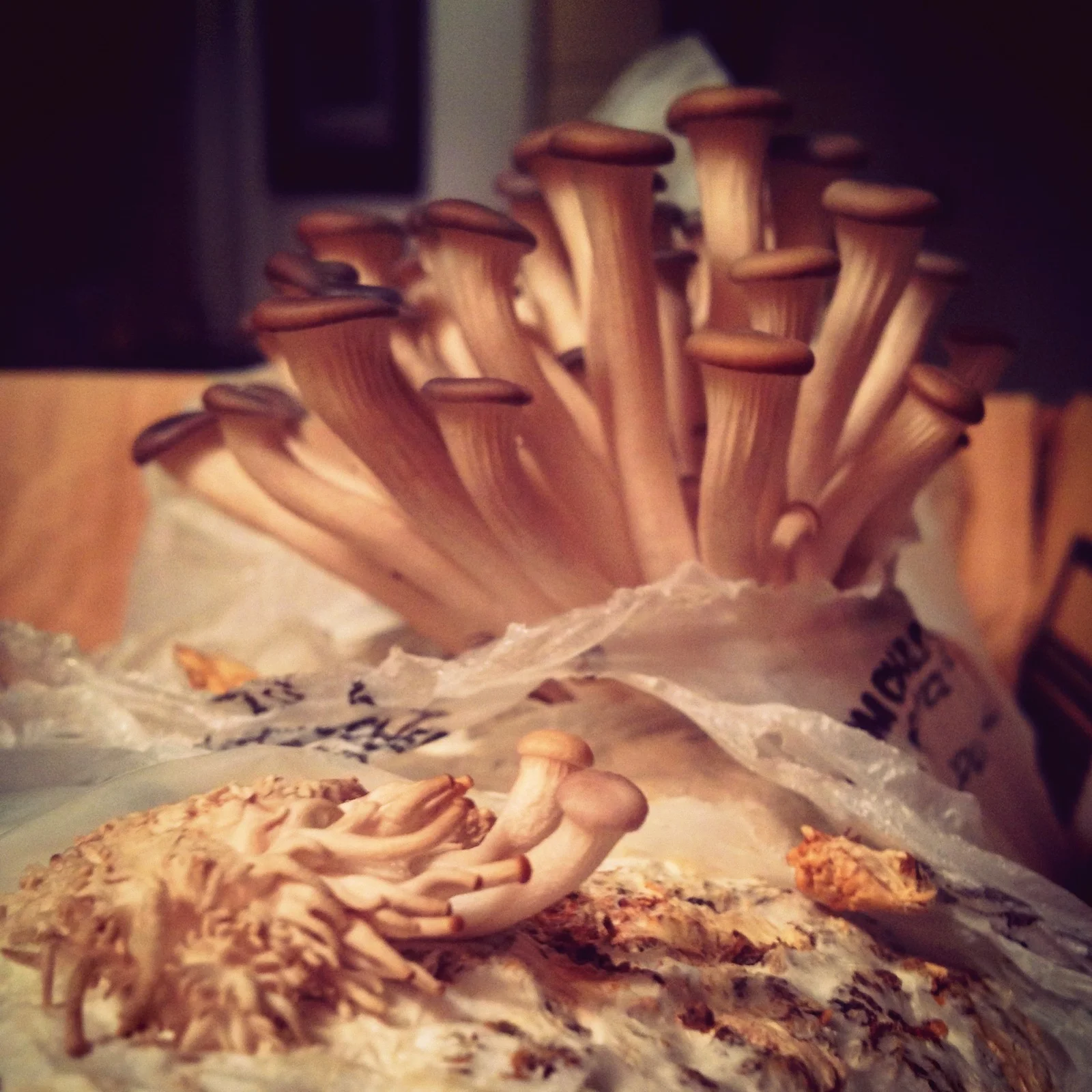
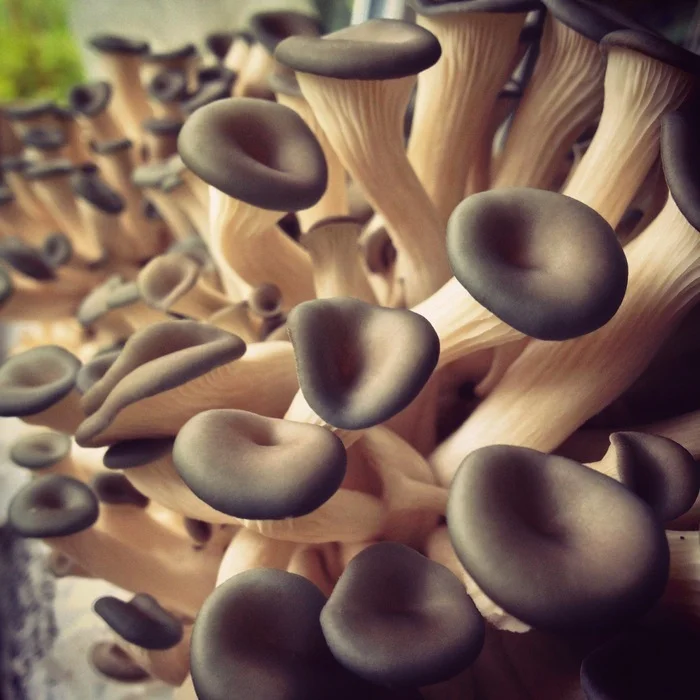

Spring 2013: Do you love mushrooms but traipsing around the woods is not your thing? Maybe consider mushroom cultivation in the comfort and convenience of your very own home! It is both fascinating and sometimes kind of a little creepy! Check out my results from spring 2013, and information on ways to do this yourself at the end of the show.

Earlier that year, I took the mushroom ID class from PSMS. Unexpected bonus at class: mushroom kit! Milton Tam of PSMS helped us all quickly assemble take-home kits. Using recycled paper kitty litter ("recycled" modifying the paper, not the litter - it was unused and clean!), guinea pig food, and oyster mushroom spawn.

This mixture was stuffed into a newspaper bag. I brought it home, cut a few slits in it, put it in the closet, and waited.

The babies required a good daily misting. The water needed to have sat out to allow the chlorine to disperse - otherwise it could damage the primordia.

These little guys are mushrooms that have failed to thrive. There seems to be some debate online, but my understanding is that you should avoid eating them.

All in all, I got about 12 oz out of this batch, but they were fairly sparingly misted, so I think the overall mass was still pretty good. They cooked up great!

One patch stalled, and the second was much smaller than the first. I wound up having to leave town right when they would be due to harvest, so I am not sure of the taste.

This was a pretty cool and ultimately low-effort project. For spawn, John Donahue at Northwest Mycological Associates, home of the world's most restrained website. http://www.nwmycol.com/ He is SUPER helpful and patient. You can buy a bag of 7 lbs of spawn for $20. There might be some lead time needed if they don't have it on hand.